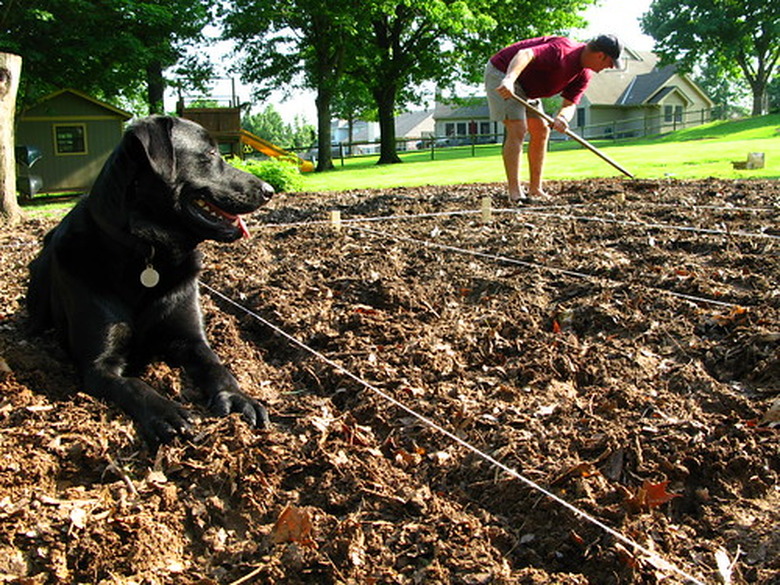Soil Treatment For Hookworm
Hookworms are found most often in cats and dogs. Hookworm disease is one of the few infectious conditions that can be passed on to humans through contact with animal feces or the ground upon which animal feces has been absorbed. In most cases, infected soil won't require treatment, but if you suspect a severe hookworm infestation in your yard, there are some measures you can take to eliminate it.
Salt Brine
Salt Brine
According to the Institute of Food and Agricultural Sciences (IFAS) at the University of Florida, a simple salt brine (1.5 pounds of salt per 1 gallon of water) applied to the affected area is an effective treatment for soil, gravel, or concrete surfaces that have been infected by hookworms.
Borax
Borax
The IFAS reports that borax, also known as boric acid, can be used as a soil treatment for hookworms. In its dried form, borax can be sprinkled on the ground to kill hookworm eggs or larvae in the soil.
Sunlight
Sunlight
Another treatment recommended by the IFAS is exposure to sunlight for two or more hours per day. This treatment may be difficult if buildings or trees shade the area.
What Won't Work
What Won't Work
According to the IFAS, there are currently no commercial pesticides on the market that can effectively eliminate hookworms from the soil.
Extreme Measures
Extreme Measures
The IFAS reports that grass and other plant life can make the removal of hookworms from infected soil very difficult, since the plant life provides shade and protection from topical applications. If you have a grassy area that is infected, you could remove the turf and expose the bare soil or, as suggested in the book, "The Control of Hookworm Disease by Intensive Method," burn off existing grass and plant life. Be sure to consult your local fire department about fire regulations and safety before attempting this method.
Prevention
Prevention
You can prevent re-infestation of hookworms in your yard by treating your pets for hookworm infection, removing existing waste from your yard, and promptly cleaning up after your pets as soon as they eliminate waste. Be sure to wash your hands thoroughly after any contact with animal waste.
